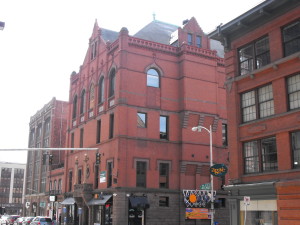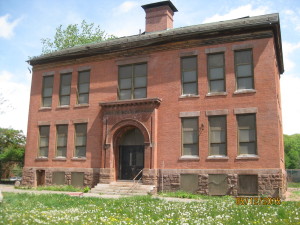The Historic Rehabilitation Tax Credit (HRTC) is designed to encourage the ownership of historic structures, and to assist property owners in the rehabilitation and maintenance of historic properties. The tax credit is issued to the property owners as a state tax voucher at the end of the rehabilitation work, which in turn it is sold to a qualified entity (i.e. Eversource).
The CT Historic Rehabilitation Tax Credit Program establishes a 25% tax credit on the eligible expenses associated with the rehabilitation costs, and a 30% tax credit for rehabilitation projects that include affordable housing components.
State tax credits may be combined with the 20% federal historic preservation tax incentive, provided the project qualifies under federal law as a substantial rehabilitation of depreciable property as defined by the Internal Revenue Service.
IMPORTANT: Costs incurred prior to the approval of Part 2 of the tax application are not eligible for tax credit
Eligible Properties:
In general, eligible properties consists of historic buildings, and buildings located in historic districts including residential buildings with five units or more, nonresidential buildings, and mixed use buildings that are consistent with and contribute to the historic character of the district in which the property is located. Properties must be listed on the State or National Register of Historic Places.
See Hartford Properties Listed on State and National Registers of Historic Places
Rehabilitation work:
All work being done on the property must comply with the Secretary of the Interior’s Standards for the Rehabilitation of Historic Properties (not just work for which tax credits are being applied for)
Eligible expenses:
Qualified rehabilitation expenses are in general hard costs associated with rehabilitation of the certified historic structure, and include but not limited to:
Walls
Partitions
Floors
Ceilings
Permanent coverings, such as paneling or tiles
Windows and doors
Components of mechanical. Plumbing, electrical, and sprinkler systems
Chimneys,
Stairs, escalators, elevators, and fire escapes.
Ineligible expenses:
Ineligible expenses are generally are costs associated with soft costs, site improvements, additions and new structures, and may include but not limited to:
Acquisition costs
Appliances
Carpeting (if tacked in place and not glued)
Decks (not part of the original building)
Demolition costs (removal of a building on a property site)
Fencing, landscaping, parking lots, sidewalks, retaining walls
New construction (except as required to comply with the State Building Code or Fire Safety Code)
Window treatments
Costs incurred prior to the approval of Part 2 of the tax application are not eligible for tax credit
Sample Tax Credit Scenarios
Example 1: Building without affordable housing component
Total approved rehabilitation cost = $100,000
Historic Rehabilitation Tax Credit = 25%
$100,000 X 25% = $25,000
Tax credit = $25,000
Example 2: Multifamily dwelling with approved affordable housing
Total approved rehabilitation cost = $100,000
Historic Rehabilitation Tax Credit = 30%
$100,000 X 30% – $30,000
Total tax credit = $30,000
Example 3: Multifamily dwelling with approved affordable housing combined with Federal historic preservation tax incentive
Total approved rehabilitation cost = $100,000
Historic Rehabilitation Tax Credit = 30%
$100,000 X 30% – $30,000
Federal Historic Preservation Tax Incentive = 20%
$100,000 X 20% – $20,000
Total Tax credit and incentives = $50,000
Application Process
Work to be completed must be approved by the State Historic Preservation Office before commencement of project work in order to qualify for the tax credit
Due to a high volume of applications, please factor in a minimum 60 day review period for project approval from the State Historic Preservation Office
Memorandum issued October 25, 2016
Program Guidelines and Application Instructions
HRTC Part 1 Application Form ITC-300 rev. 8/16
HRTC Part 2 Application Form ITC-300a rev. 8/16
HRTC Part 2 Amendment Form Form ITC-300b rev. 8/16
HRTC Part 3 Application Form ITC-300c rev. 8/16
HRTC Part 4 Application Form ITC-300d rev. 3/16
HRTC Part 5 Application Form ITC-300e rev. 3/16
HRTC Fee Payment Form
For more program details, visit the CT Department of Economic and Community Development website or contact Julie Carmelich at 860.500.2362 or email julie.carmelich@ct.gov

